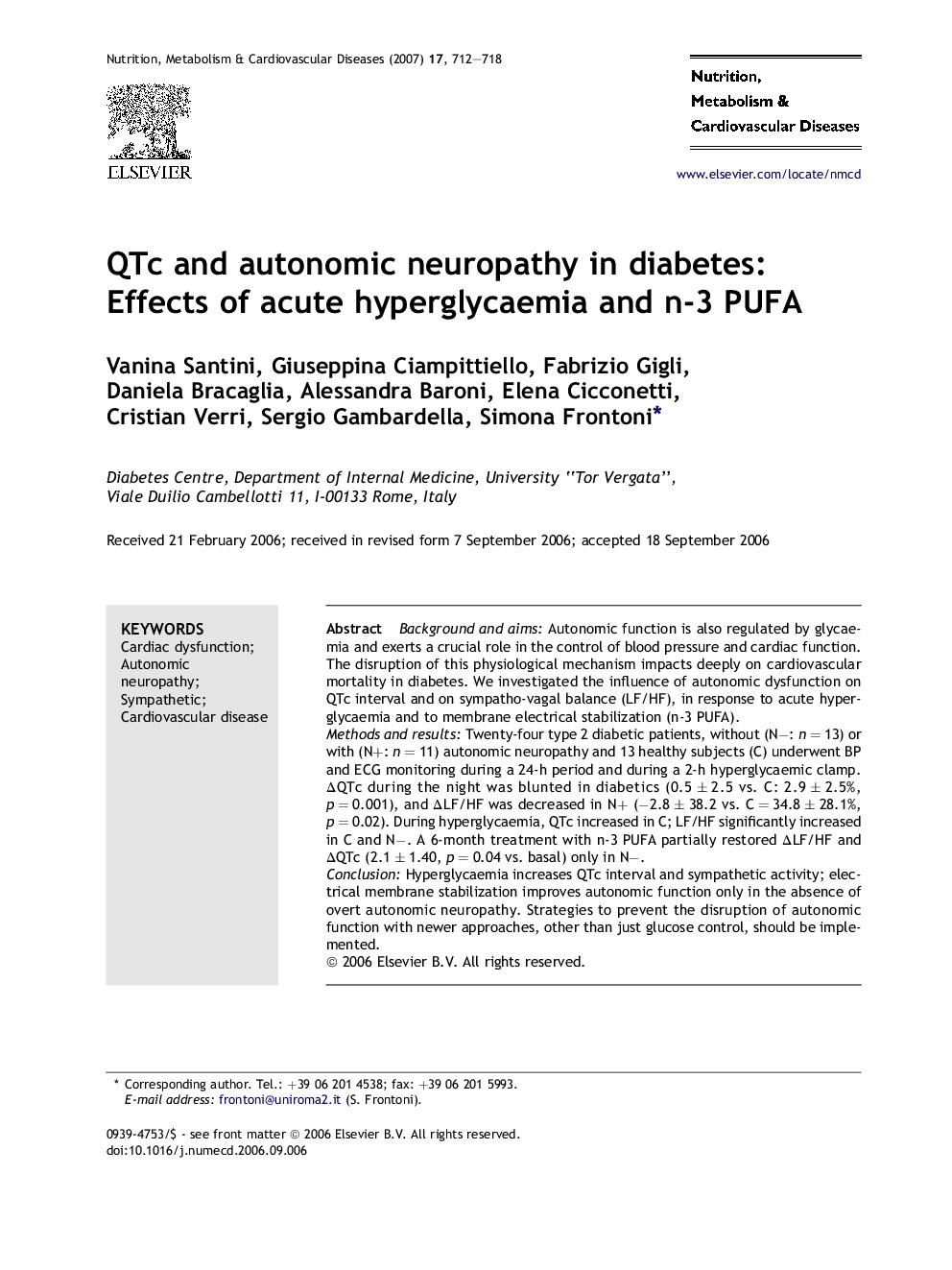| Article ID | Journal | Published Year | Pages | File Type |
|---|---|---|---|---|
| 3003172 | Nutrition, Metabolism and Cardiovascular Diseases | 2007 | 7 Pages |
Background and aimsAutonomic function is also regulated by glycaemia and exerts a crucial role in the control of blood pressure and cardiac function. The disruption of this physiological mechanism impacts deeply on cardiovascular mortality in diabetes. We investigated the influence of autonomic dysfunction on QTc interval and on sympatho-vagal balance (LF/HF), in response to acute hyperglycaemia and to membrane electrical stabilization (n-3 PUFA).Methods and resultsTwenty-four type 2 diabetic patients, without (N−: n = 13) or with (N+: n = 11) autonomic neuropathy and 13 healthy subjects (C) underwent BP and ECG monitoring during a 24-h period and during a 2-h hyperglycaemic clamp. ΔQTc during the night was blunted in diabetics (0.5 ± 2.5 vs. C: 2.9 ± 2.5%, p = 0.001), and ΔLF/HF was decreased in N+ (−2.8 ± 38.2 vs. C = 34.8 ± 28.1%, p = 0.02). During hyperglycaemia, QTc increased in C; LF/HF significantly increased in C and N−. A 6-month treatment with n-3 PUFA partially restored ΔLF/HF and ΔQTc (2.1 ± 1.40, p = 0.04 vs. basal) only in N−.ConclusionHyperglycaemia increases QTc interval and sympathetic activity; electrical membrane stabilization improves autonomic function only in the absence of overt autonomic neuropathy. Strategies to prevent the disruption of autonomic function with newer approaches, other than just glucose control, should be implemented.
